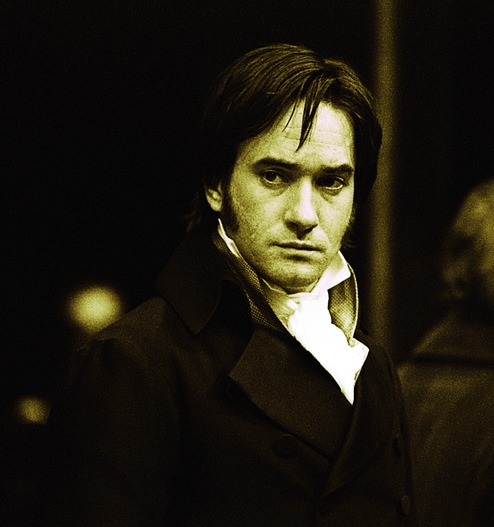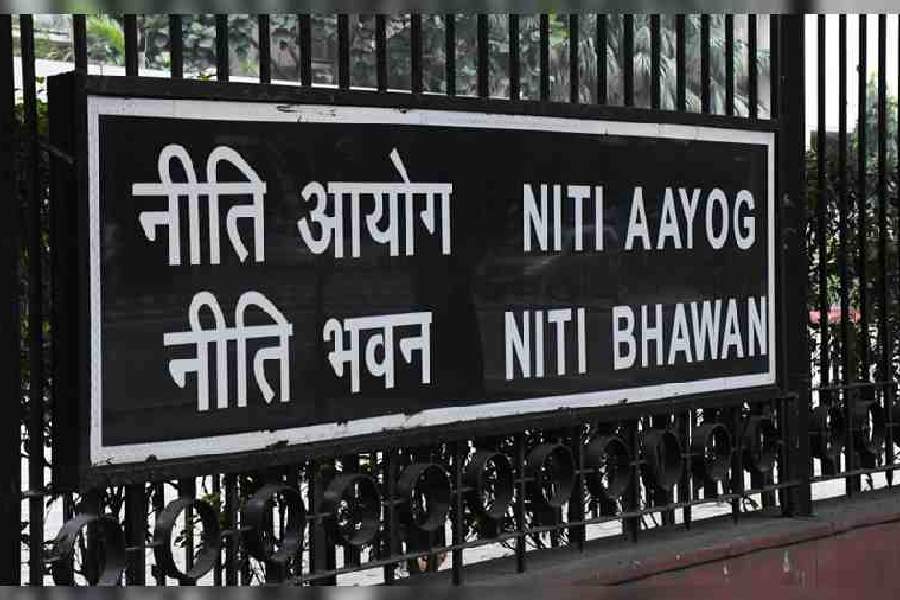'Mr D is less man, more man-promise'
Upala Sen

Funny how first impressions will stick, even in fiction. Nearly everyone who makes a case against Fitzwilliam Darcy will say - Oh. Such a proud man! And what do they cite by way of evidence? That refused first dance with Elizabeth at Meryton assembly.
Most straight men will never get this, but almost all women will agree Darcy is much more than that. He has the bearing and breeding, passion and spunk, openness and closedness, and delightful material wealth, all in measure fine enough to endure the passing of two whole centuries and giddying cross cultural transit.
Of course, it helps that Jane Austen consciously, unconsciously uses her writing to disembody Mr D; she nails the spirit of the man and allows the form to be such that it will never need no anti-wrinkle concoction. So if you close your eyes and imagine Darcy, you will never see black or white or brown, no crazy sideburns like Mr Rochester's, no bushy brows like Heathcliff's, no good-boy looks like Lord Jim's, nor a hint of a receding hairline as in the case of Emma's Mr Knightley.
Mr D is less man, more man-promise.
To get back to those who are stuck on the refused dance - okay, so he didn't find her attractive the first time round, it happens. But when he did, did you pay attention to what he was thinking? He was not stripping her in his mind or plotting his next move, but silently appraising her "playfulness" of manner and the expression of her dark eyes. Apart from being reassuring - for no amount of adipose or years can affect manner or eye - the fact that he is not riveted on the physical is also most refreshing.
Having blown his first chance with Elizabeth, Mr Darcy continues not just to pursue her doggedly, he actually tries to undo the affront. How? Well, think about it, he could have just sat her down for a chat, apologised, sent her a dozen blooms, but he doesn't do any of these things. Instead, he asks her for another dance, and another...
Elizabeth keeps rejecting offer upon offer, as she should. Puts forth her objections squarely. At times, they are too shrill even, but Darcy does not take offence. The third time she turns him down, they are at Netherfield House. Miss Bingley is playing some lively Scottish music. Darcy asks Elizabeth to dance a reel. And her exact words: "I do not want to dance a reel at all - and now despise me if you dare." Darcy replies, "Indeed I do not dare." This time even Elizabeth is surprised. Writes Austen of Lizzie, "...having rather expected to affront him, (she) was amazed at his gallantry".
Recently, a friend went into paroxysms of delight on social media when her teenaged daughter picked up a copy of P&P. The women, reacting to the post, rolled out a red carpet welcome. They said welcome to the world of classics, but I think it was the sweetheart-hood of Darcy she was being ushered into. "Do you think she will find it bereft of action?" asked another friend.
I don't have these fears when it comes to Darcy. Not because I need a reality check, but because I believe he can achieve with eye lock what flesh-and-blood men cannot even begin to approximate from rolling in hay all day.
Am I saying that Darcy makes no mistakes whatsoever? Not at all. He is disrespectful towards Lizzie's family, breaks up her sister's engagement, theorises his own developing emotions as a kind of pitfall - social most likely. But his redeeming feature is that he is aware of his failings and his feelings and not afraid or too man to recognise that something needs the tweaking.
Each time, he comes back to Lizzie, he is a different man. Now, many men will argue that this is Austen projecting some primeval female urge to capture and recalibrate men of worth while the lust haze endures, and that is exactly what is being lauded here. But when finally all is well, Darcy admits to Lizzie that he was and continues to be haunted by her reproof - "had you behaved in a more gentlemanlike manner". It seems to me, he acted on the reproof because he wanted to, for his sake, because it hurt him to think he was not being "gentlemanlike". And he says it like it is.
Darcy does not stop at exhortations of love or the eye-lock. He does things for Lizzie and her family. Whether it was very wise of him to get Lydia married to that crook of a Wickham is debatable, but he pulls it off and puts his own money where his mouth is. He is even a bit of a feminist, I would say. When Lizzie calls her own demeanour "impertinence" in retrospect, he mutters - "liveliness".
Wrapping up, do I think Lizzie and Darcy will live happily ever after? I do. I don't think he will get all her jokes. I can visualise him sighing inwardly when she burns the chance supper at Pemberley, but he will never wish it was Miss Bingley he had chosen instead. There will be times when Lizzie too will feel like catching up with the debonair Wickham or a heart-to-heart with the friendly Colonel Fitzwilliam or itch for new company. I think Darcy will continue to be a controlling friend, struggle with his inability to talk his feelings pronto, never be able to totally digest being laughed at and will never ever grow fond of his mother-in-law.
But I am convinced he and his Lizzie will walk a great distance together. They will be able to keep pace with each other instinctively. From time to time he will look at her with a lot of love. And in time she will learn to return it - full eye lock.
'Darcy sees an equal intelligence in Lizzie'
Chandrima S. Bhattacharya
It is a truth universally acknowledged, that a single man in possession of a good fortune, must be in want of a wife," begins Pride and Prejudice by Jane Austen. It is a truth almost as universally accepted that since then, for generations of women, across centuries, continents and cultures, Darcy has been The One.
He is old: 2017 marked the 200th anniversary of Austen's death, and her novel was published in 1813. Darcy, the hero, is rich, handsome, intelligent, arrogant, rude, and it is another universally acknowledged truth that many women fall for such men, even now. Narsci Darcy. Yummy.
Pride and Prejudice has inspired numerous film and television versions and other adaptations, far and wide. Darcy, tall, impeccable, supercilious, played by model Tarun Dhanrajgir - where is he now? - was as effective in an ancient Hindi serial on Doordarshan called Trishna as in the novel Bridget Jones's Diary (BJD).
BJD is the journal of a 30-something single woman whose life follows the novel's trajectory even as she obsesses about Colin Firth as Darcy emerging from a lake in a wet, white shirt. All the while, Mark Darcy, the brilliant human rights lawyer, hovers over her. In the film, Colin Firth himself plays a character called Mark Darcy.
Ah, Darcy. He is much more than Narsci.
The moment Darcy and Elizabeth meet, they arouse something deep in each other. They burn. They are of the same kind. But the formality and decorum of early 19th century polite England, the intricate class rules, and their own strong individualities will not let them fall into each other's arms straightaway. So, in the time-honoured tradition of passion that cannot be acted out, they fight.
What a fight it is. With only words at their disposal, they thrust and parry, and skin and hair fly. They lacerate each other. They wipe the blood from their mouths and lunge at each other again. It is a full-blown blood sport.
The violence is a subterfuge. All anger is sexual, says poet and essayist Anne Carson somewhere. Reading Pride and Prejudice is so immensely pleasurable; there is nothing better than watching the crackling of suppressed passion. Come to think of it, the novel is quite a strange, explosive thing for an ageing "spinster" - a clergyman's daughter, Austen was 38 when she wrote it - to write. But the Bronte sisters would do it too, soon.
This same fight had been fought by Benedick and Beatrice in Shakespeare's Much Ado About Nothing, and in Kill Bill in more recent times, with fatal consequences in the latter case because actual weapons were used.
It is a fight between equals. Neither spares the other, nor loses respect for the other. It is also a finely choreographed dance, in which one partner matches his or her steps with the other with great care.
In the course of this dance, the piano and the violin stop bickering with each other. Time passes, and letters are written and read, Pemberley is visited, and emotions are recollected in tranquillity, and the stupidity and superficiality of a world ruled by class, money, or social vanity, or the expectations of gender roles, fall away, and in the end there is clear, pure music. At least for the time being.
One wonders what happens after the wedding. Would Austen believe in something like enduring happiness for a couple? But Darcy endures. Because he dances this dance.
Not all men do. Certainly not many rich, handsome, intelligent, arrogant men. They stop at being just that. But Darcy sees an equal intelligence, an equal spirit, an equal pride, and lets Elizabeth manoeuvre him into new moves without becoming Mr Nice. Firmly middle-aged that I am, I don't see any better way of seducing women.
But male readers do not enjoy Elizabeth as women do Darcy. What to do! It's still a man's world and a woman acting out her desires can still look predatory, or grotesque, or just silly. In any case, a woman's desire is not of much consequence, cannot claim an object, except when it has buying power. But then she has to for online shopping.
Men - except a few good ones - have similar reservations for Austen, too. Men usually don't read Austen. Like Ashapurna Devi, Austen suffers because she is a woman and "writes" like a woman, whatever that means.
Austen practiced her craft during the height of the Romantic Age in English Literature: she was five years younger than Wordsworth and three years younger than Coleridge. She was one of the most powerful commentators on life and society around her, and wrote sharply and exquisitely, with the most delicious irony. Yet since she wrote fiction, and that, too, purportedly about matters of the heart, it is not taken into account what she accomplished with her novels; which upheaval - social, political, if personal - she was talking about. She herself, with an exaggerated humility not uncommon in women, had compared her work to "two inches of ivory" "on which I work with so fine a brush, as produces so little effect after so much labour".
She is hardly seen as one of the Great Romantics. They seem to be "above her company", as Mrs Bennet, Elizabeth's mother, says of Darcy when he at first refuses to dance with Elizabeth.
As the year ends, and our planet gets hotter and crueller, Darcy endures. It is a good thing. Long live Darcy. And Elizabeth too.
But even as I write this, I feel they belong to a world that has long disappeared, existing only in my memory.










